“Alternative language learning companies are attracting investors and reaching ‘unicorn’ status, a term used in the venture capital industry to describe a privately held startup company with a valuation of over $1 billion.”
English language learning has blossomed into a $60 billion global market, according to TechCrunch. Using data by Ulrich Ammon at the University of Dusseldorf, The Washington Post reported that 1.5 billion people are currently studying English worldwide. Effectively, the entire EdTech industry has exploded over the past year, growing from a value of $89 billion in 2020 to more than $106 billion this year. The industry also expects a growth rate of 19.9% from 2021 through 2028, all according to a study conducted by Grand View Research.
The market is massive and the tech industry is taking notice. Since the start of the COVID-19 pandemic, language learning apps have seen a boom in interest by investors as traditional classroom learning models have been flipped upside down. Alternative language learning companies are attracting investors and reaching “unicorn” status, a term used in the venture capital industry to describe a privately held startup company with a valuation of over $1 billion, more frequently than ever before.
BridgeUniverse spoke with the founders of three innovative companies disrupting the English language learning world. Each founder provided a unique angle in online language learning with the expectation that, as humanity continues to move forward making the globe a bit smaller every year, it is imperative that learning English is accessible to all, no matter geography nor wealth.
Duolingo
“The vision for Duolingo has always been to use technology to reduce economic inequality in the world.”
Duolingo continues to make news as the fastest-growing learning app with over 500 million registered users as of August 2021. Duolingo is a U.S.-based language learning mobile app and website that offers 106 different language courses within 40 different languages.
Duolingo declares they make learning fun by gamifying language and pedagogy expertise. Popular learning tools are short lessons, listening-focused lessons and podcasts, all using authentic-sounding dialogues.
In March and April 2020, at the onset of the pandemic and local lockdowns, BridgeUniverse reported over 30 million more new users joined the app, 67% more than the previous year.
Additionally, Duolingo filed for IPO in June of this year and is currently valued at $6.5 billion making Duolingo our only unicorn.
Duolingo was created to democratize language learning
The company in and of itself is impressive, but so is Duolingo’s founder and CEO, Luis Von Ahn. He sold two companies to Google by the time he was 30 years old, one of those being the reCAPTCHA tool that helps protect websites from spam and abuse.
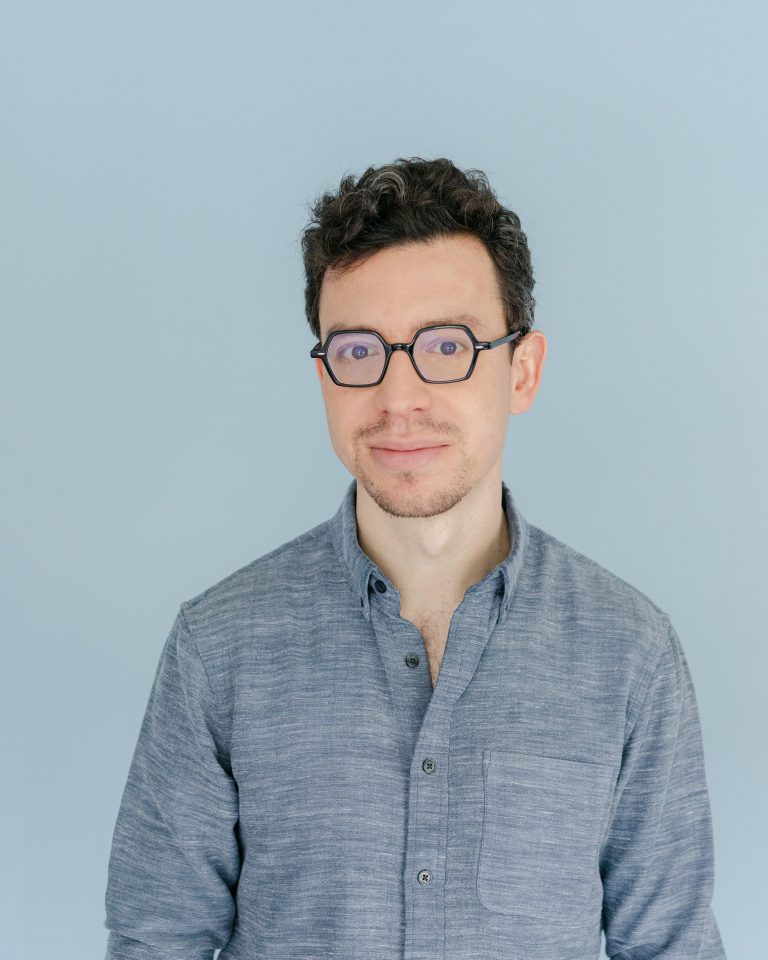
“He was in this position where could do whatever he wanted with this life and so he decided to devote his life to education,” Jennifer Dewar, head of strategic engagement for the Duolingo English Test, said. “He understood that language education is most transformative for people who can especially learn English in terms of economic mobility.”
BridgeUniverse asked Von Ahn more about his inspiration for founding the company.
“The vision for Duolingo has always been to use technology to reduce economic inequality in the world,” Von Ahn said. “This was inspired by growing up in Guatemala, where I saw firsthand the enormous impact that education can have. My mother invested everything she had into my education, and that undoubtedly changed the course of my life.
It always seemed unfair to me that the rich could afford the best education, while those without money could barely learn to read and write. I wanted to create something that offered equal access to education to everyone.”
Von Ahn and Severin Hacker, co-founder and current chief technology officer of Duolingo, came up with the idea in 2009 and launched the company three years later with the help of the MacArthur Fellowship and a National Science Foundation Grant. By launch, they had already raised $3.3 million. In 2015, the company had raised over $70 million and was estimated to be worth around $470 million.
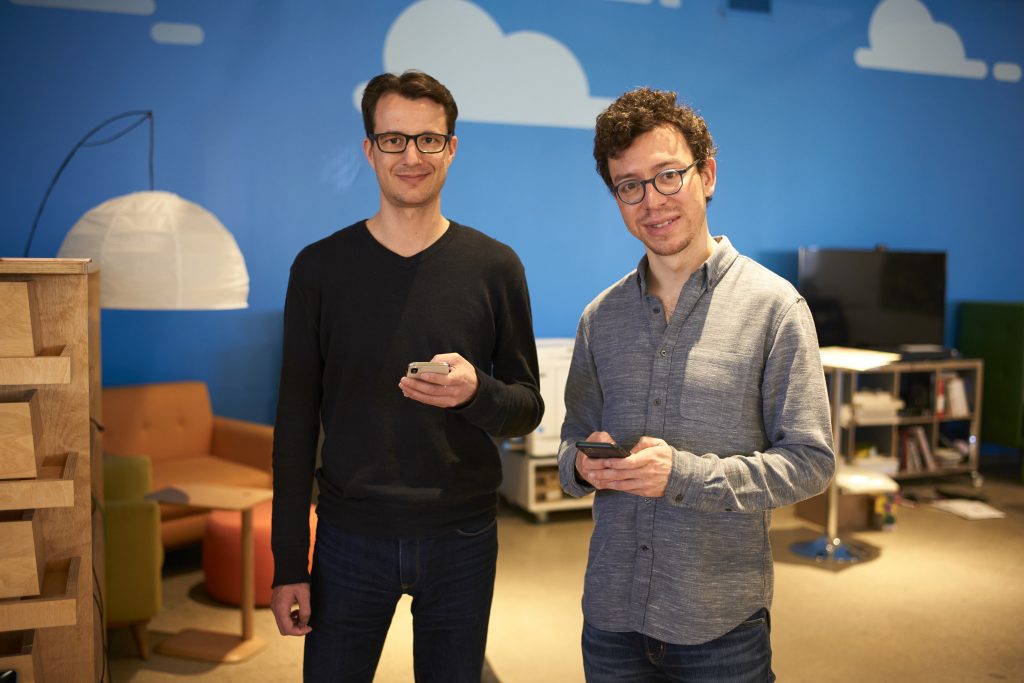
Duolingo is based on the freemium model, which meaning it’s free for users willing to watch advertisements or paid with a small monthly fee for the premium version. In addition to language learning, Duolingo offers an English test, disrupting the monopoly of TOEFL and IELTS in an effort to further democratize access to proficiency testing.
Duolingo is all about creating the most effective language tool
“We are really a product-driven company,” Von Ahn said. “The vast majority of our staff work directly on improving our products and improving how we teach. We strongly believe in making learning free, fun and effective, and this ties back to our mission as a company, which is to develop the best education in the world and make it universally available.
We know the hardest thing about learning a new language, or learning anything really, is staying motivated. This is why we focus on making Duolingo fun, using gamification, to make sure people keep coming back to learn more.”
Another unique advantage for Duolingo is its scale. Each day, learners complete around 500 million exercises. They use the data from the activities to constantly improve products through the process of A/B testing, a research methodology that uses two different lessons for the same objective. There is an A lesson and a B lesson. These lessons are given randomly to different users at the same level in their language learning. The lessons that produce the best learning outcomes for the user will then be the main lesson model for the user base. This allows Duolingo to measure and improve effectiveness over time.
At Duolingo, English teachers direct the entire ship
Not only is the company product-driven but the products are inspired by and finessed by English language teachers who are either working at Duolingo or are participating in item development.
Von Ahn’s goal is to attract anyone and everyone seeking to learn a language from all walks of life. This includes everyone from celebrities and billionaires to recently resettled refugees. Currently, nearly half of Duolingo users are learning English.
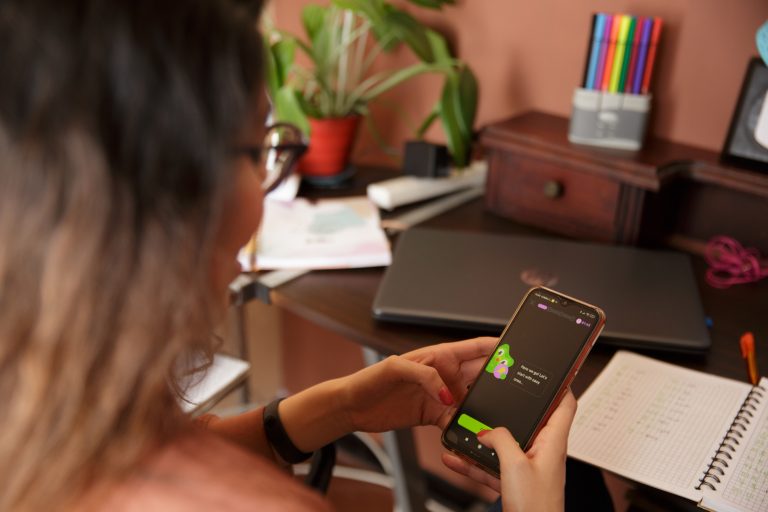
Duolingo wants you to start learning even earlier
In planning for the future as a public company, Von Ahn expects to operate with even more focus and intensity.
“At our annual conference Duocon last week, I shared a few new things we’re working on for next year,” Von Ahn said. “We’re building new features to improve how we teach character-based languages like Hindi and Japanese. We’re adding new languages to Duolingo, including several Indigenous languages like Zulu, Xhosa, Maori and Haitian Creole.
We’re going to continue building our newer products like Duolingo ABC, for early childhood literacy. I also revealed that our next project will be an app for teaching elementary math!”
Lingoda
Differing from Duolingo, Lingoda, the Berlin-based online language school, mimics the traditional teacher and classroom language instruction model but with a very important adjustment: Everything is taught over Zoom.
Lingoda offers 450,000 classes per year, teaching over 80,000 students worldwide to date. Last year, Crunchbase named the company one of the top three language learning companies globally and the company also earned a Cool Tool Award for “Best Language Learning Solution” as part of The EdTech Awards 2021 from EdTech Digest.
Lingoda offers live, virtual, private or small group classes available any time of day or night, taught by native-speaking teachers. This enables teachers to set their own schedules and, in return, students pay for classes on a sliding scale depending on class size, language and frequency of classes.
Lingoda was built to change lives
“The past two years with the COVID-19 pandemic have deeply transformed the education sector and caused a profound increase in adoption of online learning … We strongly believe that this transformation is irreversible, and the potential is huge …”
Lingoda was founded by brothers, Felix and Fabian Wunderlich in 2013. They both shared a strong passion for languages and lived across several countries, including the U.S., China, Brazil, the U.K., France, the Netherlands and Australia.
Fabian worked as a business consultant at McKinsey, and Felix was a team lead in a chain of traditional language schools. Both were working in very different, yet complementary, fields.
“It was 2013, and it was a unique point in time as digitalization was starting to revolutionize traditional industries,” Fabian said. “We looked at the online language learning world and found that there was a gap in online language learning offerings at the time.
On one hand, there were language apps, which people could undertake a fully technology-enabled, asynchronous language learning journey. On the other side, there were tutor marketplaces, where people could practice spoken interaction in a given language with native speakers. But, there was no solution offering what traditional language schools were doing, just online: high-quality teaching in a digital environment.

We combined our expertise and in 2013 we founded Lingoda, a business that would change people’s lives.”
The brothers first came up with the idea in 2012 and called the company Easy Languages. They offered one-on-one German lessons via Skype. Fabian even taught those lessons himself.
Easy Languages transformed into Lingoda after just six months when the Wunderlichs added English, and eventually Spanish and French, to the platform as well as group classes. Fabian credits the trust of investors, of which the main contributors were investment firms but also individual investors who invest earlier on than most firms are willing to get involved — often known as angel investors.
This year, Lingoda, with existing investors and global growth investor Summit Partners, raised $69 million in growth equity, bringing their funding to $83 million, and bringing them closer to unicorn status.
“The past two years with the COVID-19 pandemic have deeply transformed the education sector and caused a profound increase in adoption of online learning,” said Fabian. “In fact, during the heaviest months of lockdown, we had a nearly 200% increase in new students.
We strongly believe that this transformation is irreversible, and the potential is huge: the global language learning market is estimated to represent more than $50 billion in annual revenue with online set to grow to $17 billion by 2027,” says Fabian, adding that a 14% CAGR (compound annual growth rate) is predicted.
Taking a human-centered approach
Lingoda’s success is founded on its human element.
“Unlike apps that rely on grammar drills and basic vocabulary, we offer the chance for people to become fluent in a language through spoken interaction with qualified, human professionals,” Fabian said. “We also offer a structured curriculum through which learners can learn real-life language useful for their life situations, and we don’t leave the topics to be covered in the classes to negotiation between parties, between learner and tutor, as it happens in tutor marketplaces.”
The human element is also what inspires the entire product with a specific focus on the needs of adult learners with busy lives, which is why the classes are available any time of day or night and even weekends.
“They learn a language to achieve important professional and personal goals, which range from being able to access new and better career opportunities, feeling more integrated within a country’s social fabric, e.g., obtaining documents such as visas or citizenship, moving to another country or gaining more security and self-confidence,” said Fabian.
Lingoda conducted a survey earlier this year and reported that 93% of their students felt their professional life has been improved by learning new languages and as many as 96% said Lingoda made them more self-confident and their lives more successful.
Without English language teachers, there is no Lingoda
“As far as ELT is concerned, we believe it will continue to be increasingly important to provide qualified English language teachers. In fact, demand will grow in the coming years: according to the market research company Technavio, the digital English language learning market is expected to grow by $12.38 billion by 2025 (from a current value of $10 billion in 2021).”
English language teachers are at the heart of Lingoda and what makes Lingoda a special place to learn, according to Fabian.
“The teaching world had a profound influence on our decision to create Lingoda,” Fabian said. “My brother Felix and I come from a family of teachers. Education played a very important role in our upbringing, which led us to travel and see the world, study and work abroad. Felix also built his background in educational management. Choosing this sector for our entrepreneurial debut seemed quite natural to us.”
Fabian pointed out specifically how language teachers make a difference in their business, citing the following points:
- They bring expert learning materials to life. This includes over 2,000 digital lessons produced by an in-house international team of linguistics and educational experts.
- They are qualified, native-speaking professionals experienced in answering the questions raised in second language learning.
- They allow students to be exposed to real language use, including a variety of regional accents and expressions within the same language.
The goal is to become the largest online language school in the world
The Wunderlichs have ambitious plans for the future. Fabian laid out three factors they will focus on in 2022 and moving forward. These include growing into the U.S. market, focusing on conscientious improvement of their tools by adding more self-study options and expanding their roster for teaching professionals. Their ultimate goal is to become the world’s largest online language school.
“As far as ELT is concerned, we believe it will continue to be increasingly important to provide qualified English language teachers,” said Fabian. “In fact, demand will grow in the coming years; according to the market research company Technavio, the digital English language learning market is expected to grow by $12.38 billion by 2025 (from a current value of $10 billion in 2021).”
Hallo
A much younger company than both Duolingo and Lingoda, but proving to be just as disruptive, is Hallo — fresh out of the Silicon Slopes in the heart of Utah. Hallo also focuses on the human element but with an emphasis on learner communities and speaking clubs via livestreaming.
The Hallo app launched in 2019 with over 1 million total users, averaging 13,000 new users per week and 30 minutes average daily user engagement. To date, the founders have raised over $2.1 million, with over $1.4 million raised just last year.
Hallo was founded on creating more access to the “American Dream”
“I streamed for hours a day for a few years teaching English via livestreams and showing people around my city and other places I visited. It was almost like a vlog, but in real-time. This created a fun factor that was sticky and reinforced by learning English. It was learning English in an entirely new way — one much different than burying your head in textbooks.”
The idea for Hallo came together in 2017. Joon Beh, 30, was working with Uber as a Deloitte consultant when he realized he could use the Uber model for language learning. At the touch of a button, he could connect learners with other learners, providing them a real-time opportunity to practice their English.
Language learning was a focus for Beh, who moved to the U.S. from Korea as a teenager. He developed a drive to achieve and create. He is now living the American dream, having started his own company, and with self-determination is anticipating the opportunities the American dream is said to ensure.
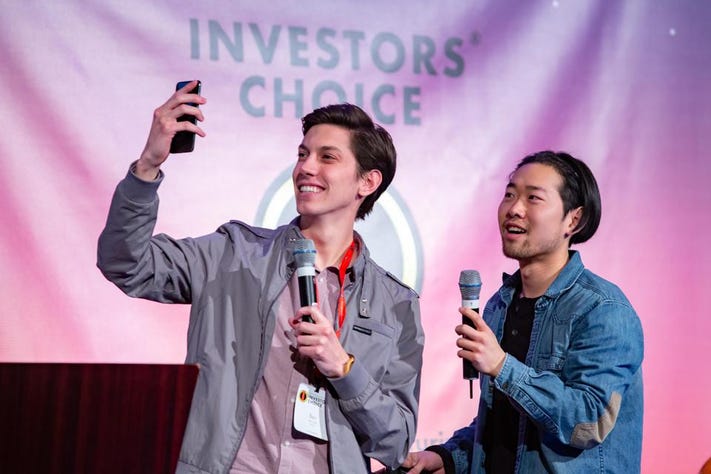
“Learning English was the passport that afforded Joon this opportunity,” co-founder and COO Benjamin Dent said. “This is the dream we want everyone learning English to experience. It is hard to put words to the feeling of helping millions of people around the world that otherwise would never have had such opportunities. At Hallo, we hope our passion and dreams are felt by everyone that uses Hallo.”
Beh and Dent came together, as former classmates and friends, and started talking about this Uber-for-language-learning concept. Dent was already passionate about education and providing value for students, so when Beh shared the idea with his friend, he was instantly sold. The concept was similar to a side project Dent was working on to create an online community for mental health. He shifted his focus from mental health to language learning. The online community idea stayed the same.
Before launching their idea, they wanted to test it using Facebook groups and pages they named Hallo.
“I streamed for hours a day for a few years teaching English via livestreams and showing people around my city and other places I visited,” Dent said. “It was almost like a vlog, but in real-time. This created a fun factor that was sticky and reinforced by learning English. It was learning English in an entirely new way—one much different than burying your head in textbooks.”
Their livestreams started getting viewed and within that first year, they went from an average of 15 live viewers to 400, with as many as 1,000 shares on many of the videos.
In 2018, Beh and Dent found a technical co-founder to start development of the app and transition the Hallo community off Facebook and into their app. They also raised a pre-seed of $150,000 within those first six months.
In 2019, they launched and within three months, they already had over 100,000 users on the app and over 5 million minutes of audio and video calls logged. That same year, partnered with RevRoad, Hallo took second place at the Silicon Slopes Startup Competition and also dominated at the Investors Choice Competition.
Hallo is built on the foundation of learner communities
The transition to the app was seamless because of the Hallo community, or “Hallo-ers,” primarily throughout Asia but also in India, Turkey, Indonesia, Brazil, Egypt, Morocco and Vietnam.
Hallo-ers worked to bring in new community members by promoting Hallo online and offline and also helped current members transition from Facebook to the app.
“A common theme from our Hallo-ers is they love the dedicated student community that is friendly and welcoming,” Dent said. “These social communities are hard to come by these days, but we try really hard to make Hallo a safe, warm and friendly place that encourages everyone to reach their speaking and life goals.”
Today, the app offers two different channels for learning. There are uniquely tailored Hallo courses where a small group of two to four students learn with a certified English teacher for one month and work on homework and projects together. The curriculum is creative and fun with courses that include, but are not limited to, Love and Dating and How to Ace the Job Interview. In addition to these courses, Hallo offers speaking clubs for students to join based on topics they are passionate about.
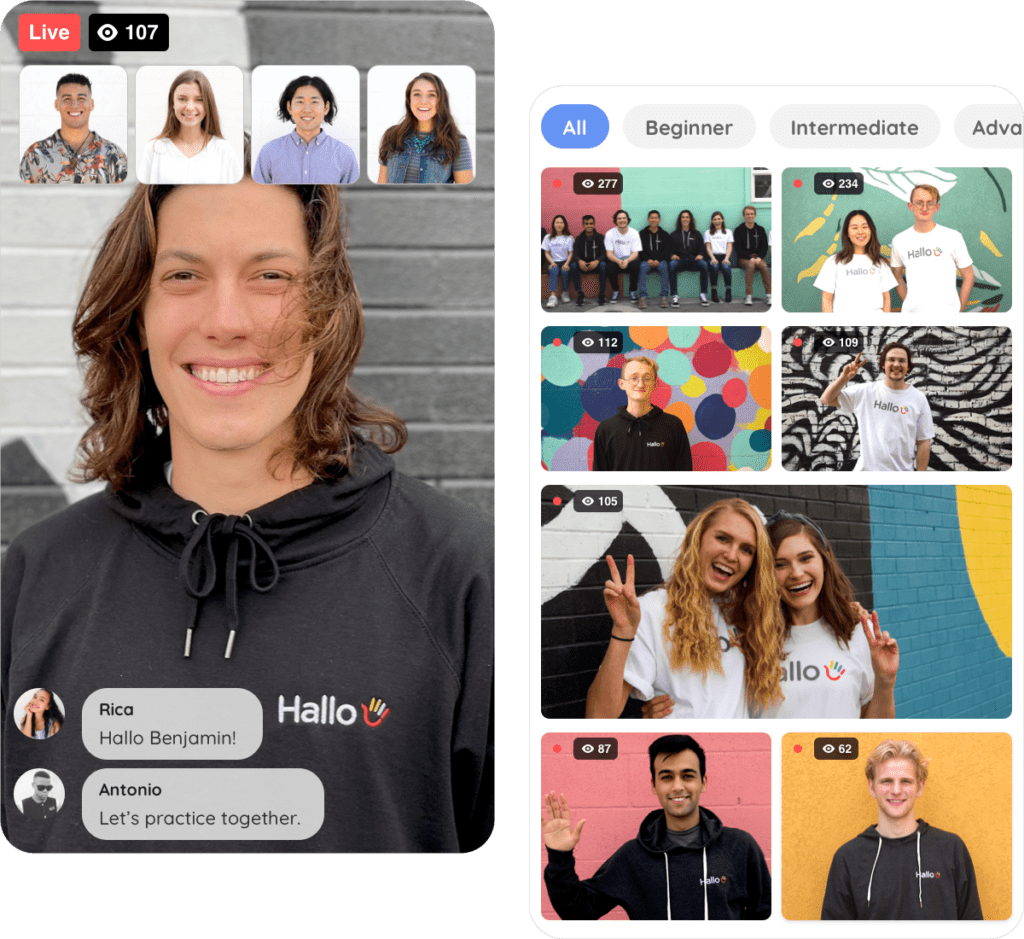
“Another theme we hear from our Hallo-ers is that Hallo has helped them become confident English speakers,” Dent said. “This is one of the biggest challenges an English learner faces. Being fluent is important, but confidence is what makes all the difference. It is the vehicle that will help them achieve their dreams.”
Hallo uses English teachers hoping English teachers will also use them
The founders created the app with English language teachers in mind with the hopes of benefiting them on the ground, both in terms of community and financial success.
“On the other side of the marketplace learning platform, English teachers are able to make money from private lessons and Hallo courses,” Dent said. “This is a great opportunity for people to make a side income or build their online presence and community through Hallo.
Something that makes Hallo unique for teachers is the social aspect that allows teachers to promote themselves and be discovered. This is hard to find on any other platform. In general, teachers usually use social media and their blogs to solve this problem.”
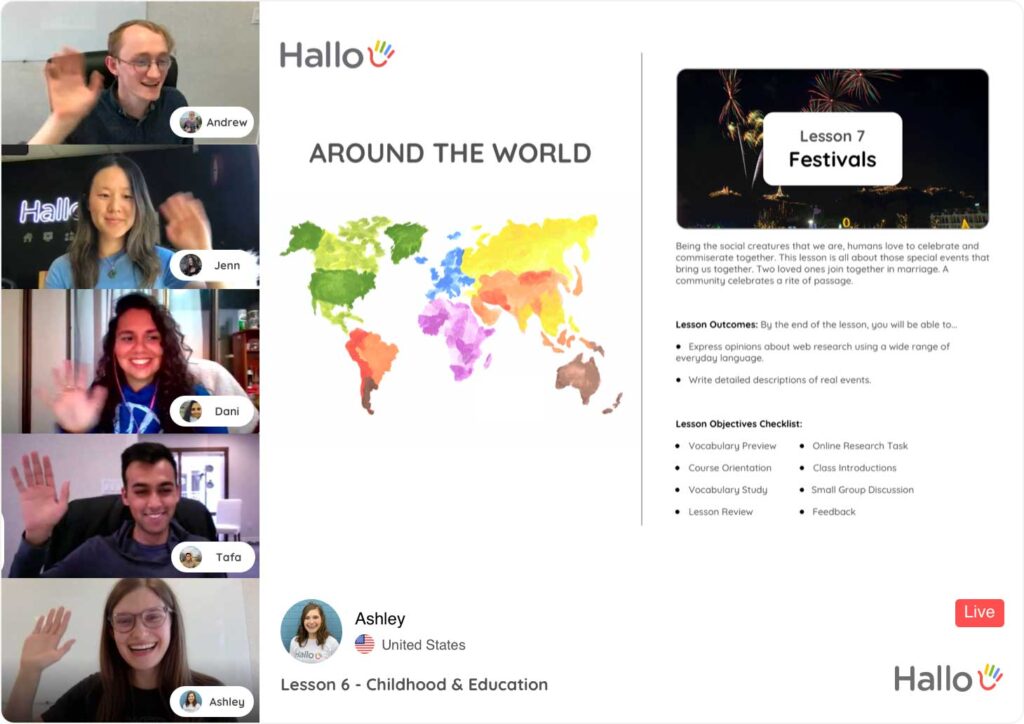
Right now, there are at least five teachers on Hallo who have over 50,000 followers and one teacher with 100,000 followers.
Both Dent and Beh would agree that none of this would be possible without the tremendous value and insight English teachers have provided via their feedback throughout their Hallo experience.
Next move for Hallo: raise more money
Moving into 2022, Beh and Dent’s focus is on finding product/market fit and raising a series A investment.
“Our focus is strictly on the product and user experience,” Dent said. “While there are many great apps and products that help people learn a language, most of them only help in the first part of the journey. The second part of that journey, or English confidence and fluency, is where Hallo is focused on.”
Whether these companies are big or small, their impact is huge. This is an unprecedented era in EdTech with so much room for growth and innovation in how companies offer language training. For these companies, their apps are not just about using code to make a dent in the market. They are using technology to make a dent in economic disparity throughout the world and they are doing it with the guidance of English language teachers.
As each of these companies has sought to use language teaching to create more equity throughout the world and opportunities for self-determination, we are seeing tech actually change the world.










